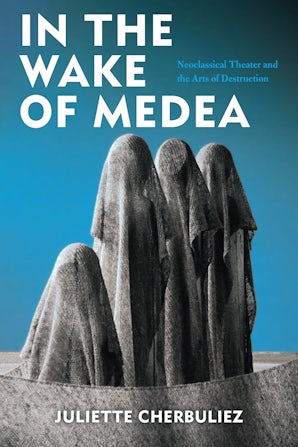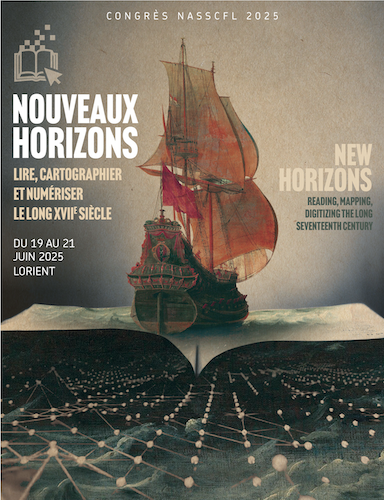 Medea is a very generative figure within Early Modern French Literature (La Péruse, 1556; P. Corneille, 1635; Th. Corneille, 1660; Longuepierre, 1694). Her myth has benefited from several feminist and postcolonial rewritings (Wolf, 1996; Agnant, 2001; Moraga, 2001; Bessora, 2004), all of which offer the opportunity to dislodge the canon and to hear different voices in various historical contexts. Recent scholarly analyses suggest that the myth can be read as a psychopolitical tale whose main character is assigned to a dominated position. However honorable Medea's knowledge and status have been in her past, as soon as she arrives in Corinth, she faces injustice. She tries to confront the hegemonic structure of the city, using its own procedures, but she fails, until violence imposes itself as her only way out. Her subordination does not only proceed from her gender, but also from her representation as “the subaltern, the Other, the misfit, the stranger” (Kekis, 2010). In Corneille’...
Medea is a very generative figure within Early Modern French Literature (La Péruse, 1556; P. Corneille, 1635; Th. Corneille, 1660; Longuepierre, 1694). Her myth has benefited from several feminist and postcolonial rewritings (Wolf, 1996; Agnant, 2001; Moraga, 2001; Bessora, 2004), all of which offer the opportunity to dislodge the canon and to hear different voices in various historical contexts. Recent scholarly analyses suggest that the myth can be read as a psychopolitical tale whose main character is assigned to a dominated position. However honorable Medea's knowledge and status have been in her past, as soon as she arrives in Corinth, she faces injustice. She tries to confront the hegemonic structure of the city, using its own procedures, but she fails, until violence imposes itself as her only way out. Her subordination does not only proceed from her gender, but also from her representation as “the subaltern, the Other, the misfit, the stranger” (Kekis, 2010). In Corneille’...
Welcome to SE17! You are not logged in. Please login to view all of the SE17 and NASSCFL content and features.
If you are not a member yet, please consider joining now.
Spotlight
Medea’s Myth: A Conversation with Juliette Cherbuliez (In the Wake of Medea, 2020)
On This Day -- 18 Jun 1726
Mort de Michel-Richard Delalande à Versailles.
Announcements >
Calls for Papers and Contributions
Grants
Prix XVIIe siècle : appel à candidatures (ouvrages parus en 2024)
Jobs
Visiting Assistant Professor of French at Allegheny College
Scholarships Available
XVIIe siècle - Aide au financement d'événements scientifiques
Conferences and Colloquia
NASSCFL 2025 - Programme

Lire, cartographier, numériser le XVIIe siècle
Reading, Mapping, Digitizing French Seventeenth Century
North American Society for Seventeenth-Century French Literature Annual Conference
Nous avons le plaisir de vous communiquer le programme de la NASSCFL 2025, à L'Université Bretagne Sud, que vous trouverez en PDF :
New Publications
Cahiers-Débats, n° 1 – Feminisms and Early Modern France | Féminismes et première modernité
Sylvaine Guyot et Hélène Bilis ont le grand plaisir de vous informer que le premier numéro des Cahiers-Débats, Feminisms and Early Modern France | Féminismes et première modernité, est à présent publié en ligne, sur le nouveau site des Cahiers du dix-septième, à l'adresse suivante : https://ojs.lib.uwo.ca/index.php/cahiers17e/issue/view/2001.
***
Cher·es collègues, cher·es ami·es,
Nous avons le plaisir d’annoncer la parution en ligne, dans la revue Cahiers du dix-septième, du numéro spécial Feminisms and Early Modern France | Féminismes et première modernité,...
Member News Briefs
No Sessions for MLA Toronto — Call for Delegate Assembly and Forum Executive Committee Members
Dear colleagues,
As current members of the MLA French 17th-Century Forum Executive Committee, we write to explain why we have not yet circulated, and do not plan to circulate, CFPs the 2026 Toronto Conference. Instead, we are outlining our response to the MLA Executive Council’s recent actions.
We join our voices to oppose the MLA Executive Council’s refusal in January 2025 to allow for an open debate of MLA Resolution 2025-1 calling for the endorsement of the 2005 Palestinian BDS Call. The MLA Executive Council’s decision not to forward the resolution to the Delegate Assembly for consideration runs counter to the organization’s long-held mission and values, particularly its commitments to academic freedom and shared governance. We recognize and support the authors of the Resolution 2025-1 and the colleagues who have issued statements of resignation and/or in...
